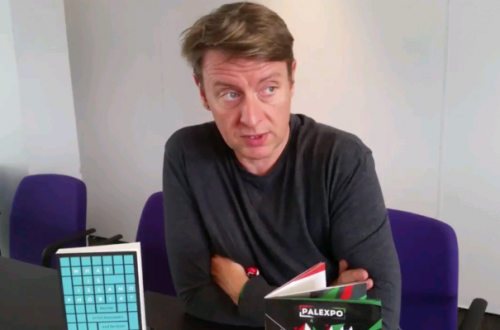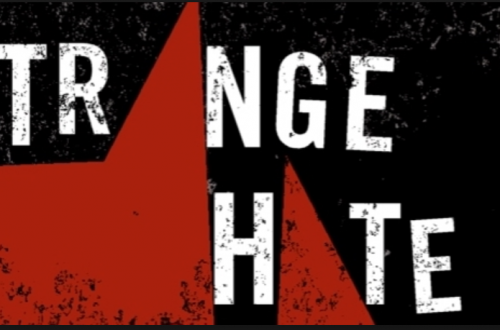This is a cross-post from CIF Watch
The title doesn’t represent the hyperbole of a partisan commentator, but the sober warnings of Sir David Omand, the former head of GCHQ (the UK’s counterpart to the NSA) and homeland security adviser to 10 Downing St.
The theft and leak of tens of thousands of top-secret NSA files by Edward Snowden, procured by Glenn Greenwald and published by the Guardian, Omand said, “eclipses the Cambridge spy ring as the most catastrophic loss suffered by British intelligence” in history. He added that ‘The Guardian and others in possession of Mr Snowden’s leaked files had gone on to publish information that was invaluable to foreign spies, terrorists and criminal networks’.
But, that’s not all.
Andrew Parker, the head of MI5 argued in a speech on Tuesday that Snowden’s leaks caused huge ‘harm’ to the capability of Britain’s intelligence services, and became a ‘guide books’ for terrorists who could use the information to evade law enforcement and serves as “the gift they need to evade us and strike at will”. Parker further said that the publication of the leaks by the Guardian had done ‘enormous damage to Britain’s ability to thwart al-Qaeda’.
Oliver Robbins, Britain’s deputy national security advisor said Snowden’s revelations, published by the Guardian, could lead “directly to widespread loss of life” and “threaten the internal stability of the UK”.
Even (Liberal Democrat) Deputy Prime Minister Nick Clegg said yesterday that The Guardian has published “technical information”, from Edward Snowden which is likely of “immensely interest”to “people who want to do us harm“.
Additionally, as anyone following Louise Mensch’s Twitter feed today would know, the Guardian’s hubris was to such a degree that they’ve even “fearlessly report[ed] on the personal sports teams, lives, sexuality and private conversations of British agents working at GCHQ.” Further, Mensch hasn’t yet gotten a reply to the question she asked the Guardian in an email yesterday responding their request for an interview. Mensch asked if she’d be allowed to ask whether “files identifying our intelligence agents at GCHQ to the New York Times and trafficked them around the world?”
Meanwhile British police are still investigating an attempt by Glenn Greenwald’s partner, David Miranda, to take encrypted files containing an additional 58,000 classified documents out of Britain in August on a flight paid for by the Guardian. Indeed, Greenwald’s response to Miranda’s detention speaks volumes about his motivation for facilitating the intelligence leaks and his lack of concern about the consequences for US and British national security.
“I will be far more aggressive in my reporting from now…I have many documents on England’s spy system. I think they will be sorry for what they did.”
It’s remarkable that any true journalist who respected his profession, and possessed even an ounce of loyalty to the democracies which afford him such historically exceptional political freedoms, would ever utter an ugly, vindictive threat.
Of course, anyone who follows our blog would understand that such behavior is part of a larger pattern for Greenwald, a commentator who is evidently so hostile to his own country that he passionately defended the al-Qaeda operative (Anwar al-Awlaki) who incited Islamist sympathizers in the US to murder their fellow Americans.
The focus of this blog is of course to monitor the Guardian for antisemitism and the assault on Israel’s legitimacy, but it’s vital to understand the broader ideology which inspires the anti-Zionism we are constantly documenting. Glenn Greenwald, as with his fellow political travelers at the Guardian, is not a mere “progressive” commentator (yet alone a “journalist) but, rather, a radical activist inspired by an “anti-imperialist” ideology which holds his own country and its democratic allies in contempt, and advances propaganda which amplifies the message of our enemies.
The Guardian’s editor Alan Rusbridger, typifying the vitriol directed against the West by many within the leftist intelligentsia, in defending his paper’s right to publish classified documents,referred to George Orwell’s book ’1984′ and argued that US and British intelligence gathering went “beyond Orwell’s imagination”. However, Orwell understood the advantages of even flawed democracies over totalitarian regimes and realized the danger of an intellectual elite which doesn’t understand such stark moral differences.
In 1945, Orwell published “Notes on Nationalism” which argued that within the leftist intelligentsia there is “a derisive and mildly hostile attitude towards Britain [that] is more or less compulsory”, and that that, to such intellectuals, political outrage is inevitably directed not towards truly totalitarian regimes, but “almost entirely against Britain and the United States.”
The Guardian’s role in nurturing indifference towards its own country’s national security – a political orientation John Stuart Mill characterized as a “decayed and degraded state of moral and patriotic feeling” – should rightly be seen as a genuine threat to the Western political values to which true liberals remain loyal.
Guardian editors and contributors may not hate Britain, but their activism certainly serves to aid and abet those who do.


